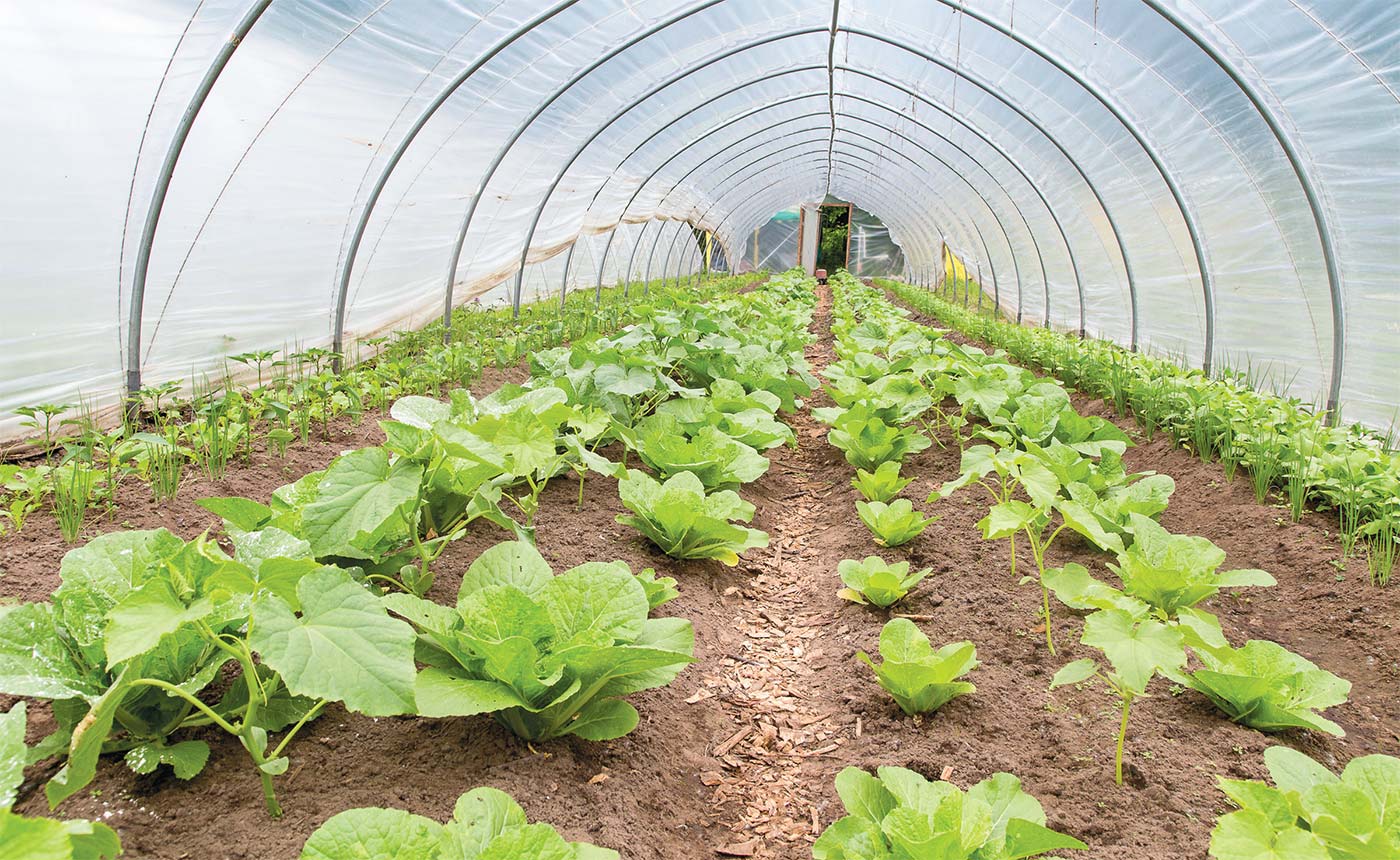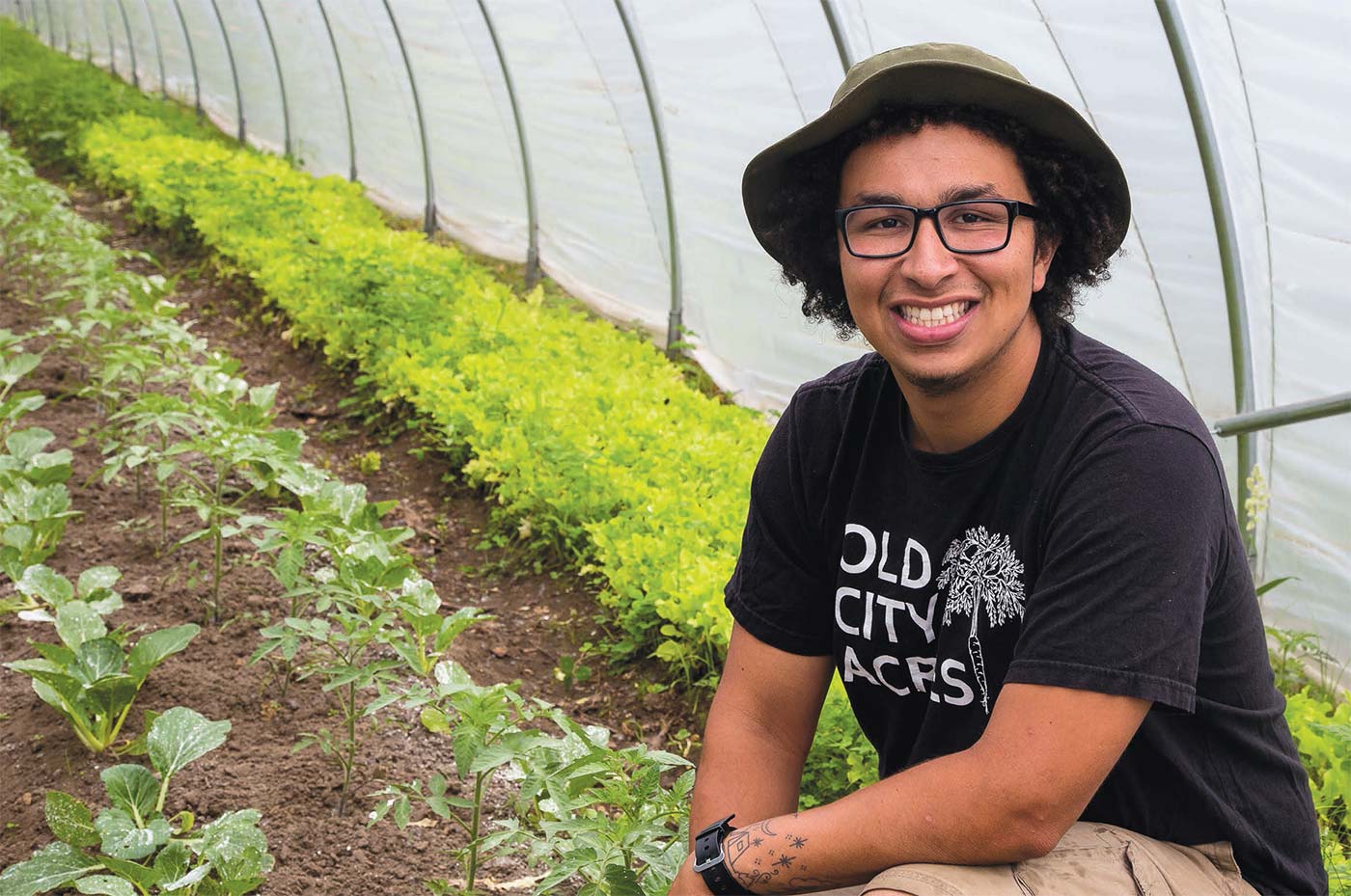The Happy Farmer: Old City Acres and the Beauty of Small
In the wake of seemingly endless rain in the 2019 Michigan spring, the ground at Old City Acres farm squishes underfoot. But the spirits of its farmer and owner, Alexander Ball, are not only undampened, they’re downright bouyant.
“No doubt it’s been a challenge,” says the 25-year-old from Romulus, Michigan. “I’m three weeks behind. But I keep things super lean. We can handle a three-week delay.”
The kid from the ’burbs credits his parents for instilling his mentality of “if you read about it, you can do it.” Or, in Ball’s case, if you see it on YouTube.
In high school, a video on aquaponics captured his attention. “I thought, I’m gonna do that for fun. I met a guy in a McDonald’s parking lot and bought a bag of tilapia and a bag of feed.” A few months later, the fish were ready to harvest. "They were monsters! I cooked and ate them, it was so cool, producing something, growing it into a dinner. It blew my mind a little.”
From there, farming was a logical step. As with the fish, he started on a small scale. He says he owes a lot to Wally Satzewitch, a pioneer in small-scale farming who advocates renting or borrowing land. Ball got permission to till up his grandparents backyard, and by summer of 2013, had produced his first crop. Thus was Old City Acres born—even before it had a full acre of its own.
In college at the time, Ball found himself daydreaming in class about being out in the field. He decided to declare a business major and to stop at the two-year mark with an associate’s degree, now saying, “Accounting classes have saved me again and again.”
That's when the adventure began in earnest. Over the following years, he leased plots, increasing in size over time but never exceeding what he felt he could successfully manage.
But having to uproot at the end of each yearly lease proved difficult and dispiriting. By 2017, Ball had decided to buy a small piece of land.
Finding the perfect spot—one where he could build greenhouses, grow vegetables and stay within his “very tight” budget—proved daunting.

“I think I looked at about 100 properties. I got to the end of my list, and I thought, I’m done. I’m tired of skating uphill.” Driving home, he decided to look at one last lot. “From the street, it looked like the least fruitful one yet. But then I pushed aside the brush, I walked like 20 feet. And let’s face it, I was desperate and it was in my price range. This whole thing,” and with a huge smile, he opens his arms to indicate his two-acre farm, “is here because I was exhausted.”
Clearly, Ball operates very well on fumes. Old City Acres now thrives. Naturally, a great deal of work has gone to make it that way.
“We spent last year chopping down trees. Then we got a backhoe to pull out all the stumps. en we had this machine that got rid of residual roots.” Irrigating the area and making sure the drainage worked properly was the next step. “One day, I was just walking back and forth over the property, marking off the canals, and I registered 17 miles on my phone,” he says, laughing. Now, a sophisticated DIY system siphons excess water o the land and into a sump pump.
Constantly on the lookout for a bargain, Ball relies on a network of friends. In need of water storage tanks, and on the verge of ordering new ones, Ball suddenly got wind of three that were about to be destroyed. “I got all three for $300; I couldn’t believe it. It was about a day’s work, getting them on the truck, hauling them here— we actually put them on their sides and just rolled them across the fields. If I gure in truck rental and gas money, I saved $2500 just right there.”
The farm’s produce grows in a series of hoophouses—which, of course, Ball constructed himself, with help from friends like Seth Torkelson-Reagan, whose official title at Old City Acres is Master of Ceremonies and Ambassador to Latin America. “We grow a lot of greens: kale, chard, Asian greens, arugula. I’d say they’re kind of the backbone. And we do a lot of tomatoes, peppers, herbs and some roots, like beets.”
You can find Old City produce at the Ypsilanti Farmer’s Market, where Ball accepts SNAP funds. “Farmers market produce has this reputation like it’s pricier, but it’s vital to me that everyone should have access to it, no matter what level of income. Everyone should be able to get fresh, nutrient filled food. I figure maybe it’s 10 hours of paperwork a year. If one person benefits from that, that’s all I need.”
He also operates a CSA, with pickups at the Ypsi market as well as at the farm. A store connected to Old City Acres is on the horizon. It’s hard work. Ball wouldn’t have it any other way. He’s the first to credit the village behind him. “When I told my mom I wanted to be a farmer, she cried. But she’s my biggest supporter. And my whole family—my dad, my grandparents, my cousins, my friends, everybody—we all help each other.”
Those values inform Ball’s vision for Old City Acres, one of feeding his community. “We use organic seed, we don’t use additives or pesticides. But seriously, with veggies, the most important thing is love.”





